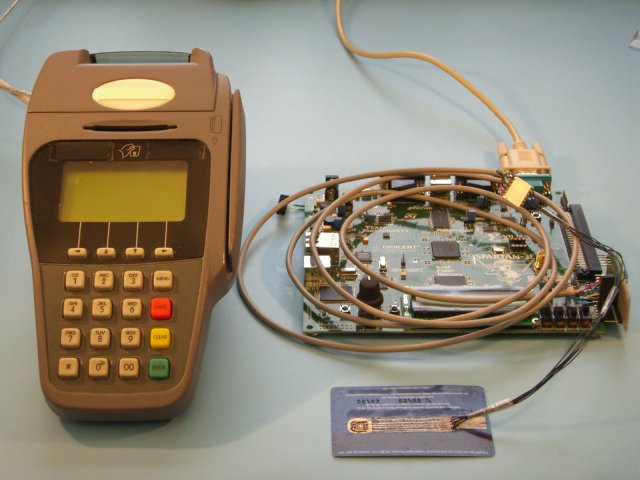Scammers caught backdooring chip and PIN terminals
The U.K's Dedicated Cheque and Plastic Crime Unit (DCPU) have recently uncovered state of the art social engineering
"According to police the tampered chip and PIN terminals are installed in (30) retail outlets and petrol stations either by someone working on the inside or by threatening staff. The criminals are then able to steal card details and PIN numbers. These are then used to create fake magnetic stripe cards containing the stolen card details, which can be used to withdraw money from cash machines or pay for goods in shops in countries that have yet to roll out chip and PIN technology. "
And while details on how did manage to install them at the popular locations without getting noticed, and whether or not there were insiders involved in the scheme remain unclear, a similar incident which recently took place in Ireland may be directly related to this one. Basically, the scammers installed the backdoored terminals by pretending to be bank technicians, the rest is fraudulent history :
"Opportunistic data thieves — masquerading as bank technicians — have fooled shop owners into giving them access to credit card terminals and managed to download the details of over 20,000 credit and debit cards, it emerged this morning. The Irish Payment Services Organisation has warned that individuals pretending to be from Irish banks convinced shop owners they were carrying out maintenance on behalf of banks. This enabled them to plug in wireless devices that pushed the data to the internet and allowed the card numbers to be used overseas."
From technical perspective, what these data thieves did is not rocket science, it's the direct result of a situation known as "when the academic community is talking nobody is listening until criminals do their homework". For instance, the folks working for the Computer Laboratory Security Group at the University of Cambridge have been extensively researching the trivial opportunities a criminal can take take advantage of on his way to backdoor and tamper with chip and PIN terminals. What they're trying to achieve is raise more awareness on the fact that just because a financial institution has a Security Tips section on its web site, urging its customers to update their antivirus software, run a firewall and don't open phishing emails, shouldn't mean that the institution shouldn't be held liable for fraudulent transactions given the highly insecure equipment it's using at the first place. Here's some of their research worth going through :
- Chip & PIN (EMV) relay attacks
- PIN Entry Device (PED) vulnerabilities
- Chip & PIN (EMV) interceptor
- Tamper resistance of Chip & PIN (EMV) terminals
As far as online credit card fraud is concerned, a recent survey that I did on the topic of whether or not stolen credit card
What happens once the preferred tactic of choice takes place, and the credit card details get stolen through banker malware infected hosts? Over at ISS's Frequency X blog, Gunter Ollmann has been researching the availability of tools and equipment allowing cybercriminals to quickly transform the digital data they've obtained into real credit cards, and the data speaks for itself.
Never play Tetris on a backdoored terminal, and stay informed.